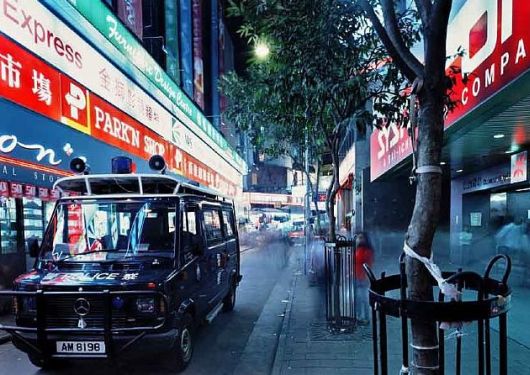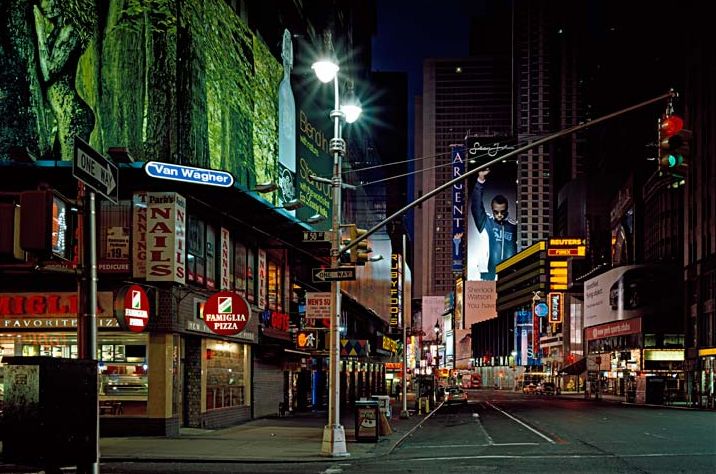 CHICAGO
CHICAGO In Which This Often Delays The Life We Want
 Tuesday, February 17, 2015 at 11:55AM
Tuesday, February 17, 2015 at 11:55AM  painting by Tadeusz Bilecki
painting by Tadeusz Bilecki
All This Desire
by BRITT JULIOUS
The Naughty Sins of a Saint.
Being Barron.
Forgive Me Father For I Have Loved.
I wish these were the titles of my journal, but instead, they are a few of many books I keep tucked away inside of my kindle. They are not featured in The New York Review of Books or excerpted in the New Yorker. No, they are cheap, quick, impulsive buys meant for late nights when I am lonely.
That happens a lot.
At my old, terrible day job, a girl I never particularly liked briefly mentioned that she secretly worked on a romance novel.
“Really?” I asked.
“I feel like I can tell you this,” she said.
“And why is that?” I asked. “Am I wrong in thinking that you don’t like them, too?” she questioned back. Like me, she was an English major. And like me, she kept the public books and the private books separate. You know, White Teeth by Zadie Smith on a black wooden bookshelf in our living rooms. The President’s Girlfriend by Mallory Monroe on a locked Kindle. But I wasn’t going to let her know about that. Some things we just keep to ourselves … at least until right now.
I turned away in a huff.
“I have to get back to work,” I mumbled. That was the last conversation we ever had. The next week, she moved to a different department, and a month later, she left the company.
“I don’t feel…STIMULATED here,” she used to say a lot.
“Like, what am I doing here?” she once asked.
And yeah, what ARE you doing here? I wanted to ask. SOME of us appreciate our jobs, appreciate the fragility of this situation in the face of this job market.
That was what I used to tell myself. I tried to, at least. But within two months, just a few days after she was gone, I began applying for new jobs and writing whenever and wherever I could. Maybe she was right. If writing – and reading - a romance novel was a method of escape for her, who was I to judge? Especially, you know, because I read them too.
I began reading first romance, then erotic novels during my senior year of college. My interest stemmed from a love of fan fiction and a desire to both write and read beyond the characters I saw on the screen.
I am one of those women you hear about, those weirdos, those freaks who sit in front of their computer screens and keep the fantasies of our favorite characters alive. I guess I understand Harry Potter fan fiction or Twilight fan fiction. I’d never read them though because that’s not me. Those stories are rooted in fantasy. And the fantastical breeds the fantastical.
I prefer expanding on the mundane and the regular. I would rather create a reality that seems possible and in that way, make it more of mine. I have written stories about My So-Called Life and Gilmore Girls, stories about Love & Basketball and other romantic comedies. And also, perhaps worst of all, if you dive deep enough into the archives of the Lizzie McGuire subsection of the website Fanfiction.net, you might be able to find a story I wrote about a love triangle between Lizzie and best friends Gordo and Miranda.
On the show, Lizzie’s internal thoughts were expressed through an animated version of herself. In my fan fiction, this animated self talked about “falling in love” and “making love” and “being in love.”
I was 12. I had barely been kissed. Well, not truly, not of my own accord. But in my stories, there was sex and violence and lots and lots of yelling. These were the things that made adult life for me. This was romance. This was passion. This was a future reality.
In romance novels, I like that the men represent a validation of my fantasies and my fantasies are not merely of the physical, but also of the potential for triumph, for personal redemption, for overcoming the things about ourselves — whether articulated and open or deeply stored within — that often delay the lives we want and the people we want to be.

I think of myself as a woman coming back to her optimism. It was lost for a number of reasons in a number of different ways, but a part of me seeks out an interaction with the world that makes risks possible and chances worth taking. What I fear rests in me is a deeply-ingrained thought practice that ultimately makes living and loving seem like things other people do. I used to think, you are not happy because you are not meant to be happy. You are not in love because you are not meant to be in love. Instead, you get … everything else.
Like ONE.
One summer, the season came late. At a bus stop, I rested against the brick wall of a local bank and waited to head north after a long day at work. A man crossed the street. His face was angry and his eyes bore into mine.
"Those shorts are too short," he said.
I’d never heard that before, at least from a stranger. Every summer before that moment, I thought those same thoughts, worn down by interpretations of flesh. By September, I anticipate the fall. I like tights, I start to think. They reflect my quietness, the “goodness” that exists in me that this man implied did not. I am sexual, but the world does not need to know. I am sexual, and you can’t judge me for it.
"Too short?" I asked that day at the bus stop.
"You look like a slut."
Like TWO.
Years ago, my mother and I went to a Chernin’s Shoe Outlet on the West Side of Chicago to pick up a pair of day-to-day gym shoes. The young man helping me gave these long looks that complicated his deep brown eyes and thick eyelashes. He smiled a lot and was thin, slightly gawky, but in a charming way that made me wish that I would meet a man like that when I was OLDER, when I knew more.
He took off my gym shoes and gave me a small foot massage. I turned around, cautious, but soon realized that my mother wasn’t looking. She was nowhere to be found. I panicked, assuming she had left me in the store with the young man who was quickly moving away from charming to lascivious. He licked his lips and
THREE … it reminded me of a family member from down south that I met, earlier that year, at a reunion.
"I bet you don’t remember me!" the older man said that afternoon at the reunion as I sat on a bench, in the shade, eating a plate full of macaroni and cheese.
"Nope!" I said annoyed, and turned away.
That day at the park, the older man hovered above me and I did my best not to look up, afraid of what he would say or do next to grab my attention. Hoverers always recognize those who hate hovering. They sense it. They take advantage of it. They manipulate those who cower.
"I’m talkin’ to you!" he shouted. He licked his full lips and smiled. I ran away.
BUT, back at the shoe store, the young man said, “You’re very sexy.”
Right then, my mother reappeared. I don’t know where she was beforehand. Perhaps she was there all along, and I didn’t notice her because I was too caught up in the moment with my new shoes and new acquaintance.
"How old are you?" she asked him angrily.
"Sixteen," he replied.
My mother grabbed my arm and squeezed tight.
"Well, she’s EIGHT, so I suggest you look somewhere else." We quickly left the store but came back. I was only wearing one shoe.
Like FOUR.
Two weeks ago, a man masturbated at me on the train. When I saw, he stood up and cornered me in my seat. When I yelled at him, he put his body on top of mine. When I tried to push him away, he kept at it. He was too big. And I am strong, very strong, but not strong enough. He looked me dead in the eye. He came on my leg.
And then he strolled away.
Like FIVE.
The time, at three a.m., when a cab driver said, “You know, if I wanted to, I could lock you in this car and do what I wanted with you.” And then he locked the door and laughed.
Like SIX.
My swim instructor.
Like SEVEN.
The summer after I hit puberty. The man with the blood-shot eyes, with alcohol on his breath. The alley.
These things, they shape the way you look at life and the way you encounter the people around you. If you are like me, it stifles your freedom, creating an existence of confusion. What does it mean to be loved? What does it mean to be happy?

The black heroines in many of the novels I read are not traditionally beautiful, but they are interesting. They struggle and weep alone; keep their heads up and minds focused in private. They do a lot and feel a lot and often find peace through extraordinary circumstances that are more difficult than their lives pushing toward success and the desire to overcome a challenging society, a prejudiced society, an unforgiving society.
Last year, while sitting on my couch with my ex-boyfriend, I noticed my Kindle on my coffee table. I tried to put it away, embarrassed by what it might imply. I remembered a conversation a year ago between my friend Katie and I.
“I used to read romance novels when I hadn’t had sex,” she said.
But I had sex years and years ago. Girls like me, girls who’ve seen it all, crave something real and think we’ve found it when instead, we’ve warped our sense of reality. I dated all sorts of men. My personal stories are long and weird and represent a self wandering again and again for something that will fit if not in the pages of fantasy than through a sense of normalcy.
“I just need to think about something that works out in the end,” I said to Katie. I want happy endings.
Back in that moment with my ex, he quietly asked, “What do you have on that?”
“Games, apps … and lots of books,” I replied.
“What kind?” he asked.
“Well … mostly romance,” I said.
“Why read that when you’ve got the real thing?” he asked. But I knew how it was going to end. This was before the possessiveness, the health scares, the questioning, the ridicule. I could sense it through every inch of me.
“I just need it, OK?” I said.
The ways in which I can overcome the world at large are through myself. I can not depend on outcomes of others, but must instead push myself to work harder, to think more, to pursue more. And in my favorite novels, the heroines must overcome the limitations of affection by challenging their willingness to love and trust. When will I learn?
“I am worthy,” she said.
“I am worthy,” she said.
“I am worthy,” she said.
“I am worthy,” she said.
I took that from four different stories with four different characters who were like and unlike me. What connects them is their visibility and humanity. They are worthy. I forget that.
I am worthy too.
Britt Julious is the senior editor of This Recording. She is a writer living in Chicago. You can find her website here. She is the founder of Inland.
Paintings by Tadeusz Bilecki.

"Pay Attention" - Colleen Green (mp3)
"Deeper Than Love" - Colleen Green (mp3)









































